Matcha is all the craze now, and honestly, it’s been brewing for a while (cue laughter). Nothing beats starting the day by whisking a gorgeous microfoam to Studio Ghibli music.
From TikTok lattes to collagen matcha blends and $9 green drinks at your local café, matcha has gone from niche to non-negotiable for caffeine lovers who want to feel clean, zen, and just a little bit smug about their beverage choices.
Also read: A Guide to Locations in Japan that Inspired Studio Ghibli films
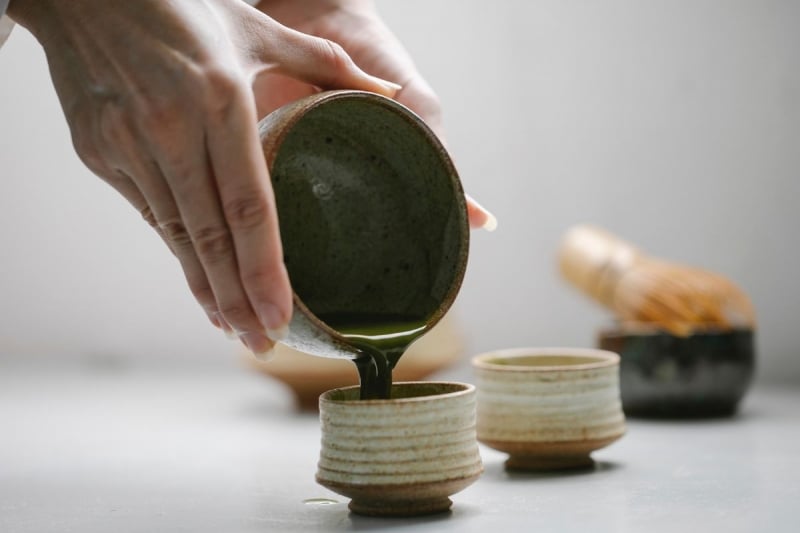
Image Credit: Charlotte May via Canva Pro
But if you’re truly serious about matcha, there’s no better place than Kyoto. With centuries-old tea shops, picture-perfect packaging, and Uji (the birthplace of Japanese matcha) right next door, this city is truly the matcha capital of the world.
From minimalist cafés to 300-year-old tea merchants, we’ve rounded up the best places to shop for authentic matcha, plus a few tips to make sure you don’t get duped by the tourist traps.
Also read: How to Ride the Shinkansen in Japan: 8 Hacks Every Traveller Should Know
What to know before you buy matcha
Okay, so now you’re ready to buy matcha in Kyoto. But how do you know you’re getting the real good stuff? Before you start filling your suitcase with green tins, here are a few quick tips to help you spot high-quality matcha and not get duped.
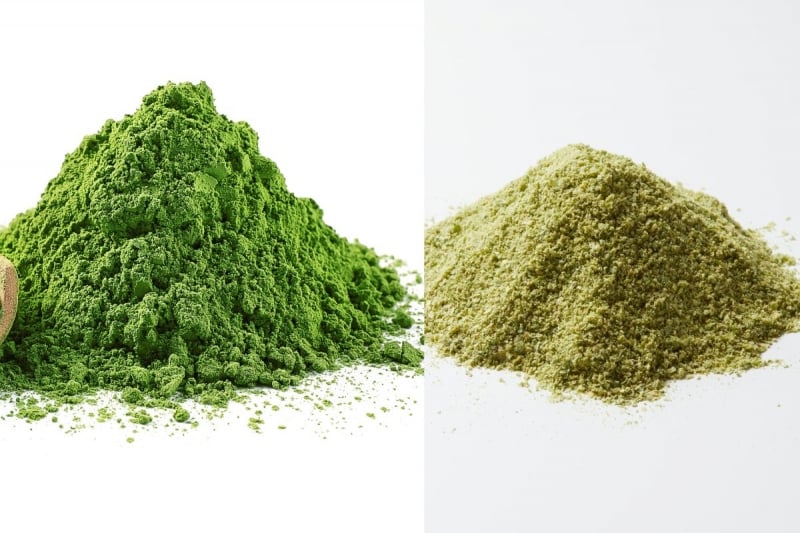
Image Credits: (L-R) pixelshot via Canva Pro; Aflo Images via Canva Pro
Color matters: Vibrant green = good. Dull yellowish = skip.
Texture test: Good matcha should feel like baby powder. If it feels or looks clumpy, it’s bad.
Uji-grown is a gold standard: If the shop says it sources from Uji, that’s usually a great sign.
Ceremonial vs. culinary: Forget the labels because they’re not regulated. Instead, ask how it’s meant to be used (sipping vs. baking vs. lattes).
Storage tip: Matcha degrades fast, so buy only what you’ll use in 2–3 months and store it airtight in the fridge.
The best matcha shops in Kyoto
For Traditionalists: The Heritage Icons
Ippodo Tea Kyoto Main Store (Downtown Kyoto)
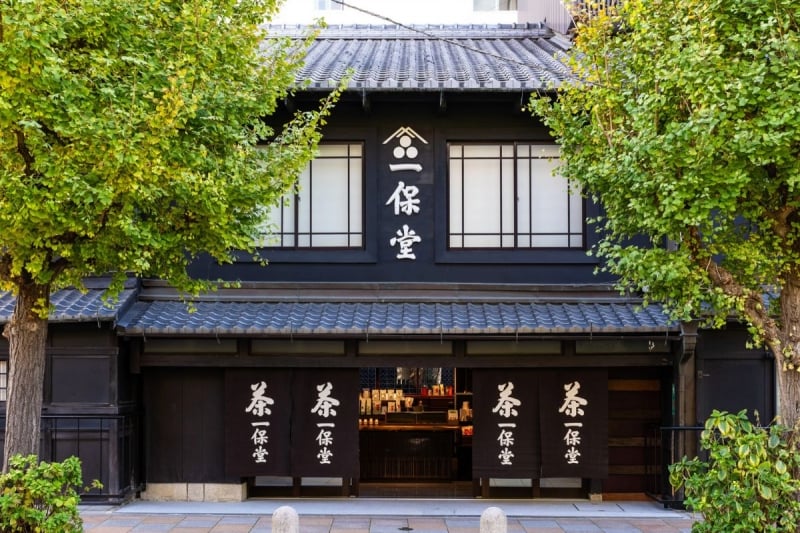
Image Credit: Ippodo Tea Official Website
Established in 1717, Ippodo Tea stands as a venerable institution in Kyoto’s tea culture. Located on historic Teramachi Street, just a short walk from the Kyoto Imperial Palace, the main store seamlessly blends tradition with modernity.
Upon entering, visitors are greeted by a warm, inviting atmosphere, with shelves lined with over 30 varieties of meticulously curated Japanese teas, including matcha, gyokuro, sencha, and bancha. The knowledgeable staff are always on hand to guide you through their selections, ensuring you find the perfect tea to suit your palate.
For those on the go, Ippodo offers a take-out counter where teas are brewed to order, allowing customization of strength and flavor. This ensures that even a quick visit provides a personalised tea experience.
Address: Japan, 〒604-0915 Kyoto, Nakagyo Ward, Tokiwagicho, 52 寺町通二条上ル
Opening Hours: 10am–5pm
Try if: You’re looking to get tea as a gift
Marukyu Koyamaen (Nishinotoin)
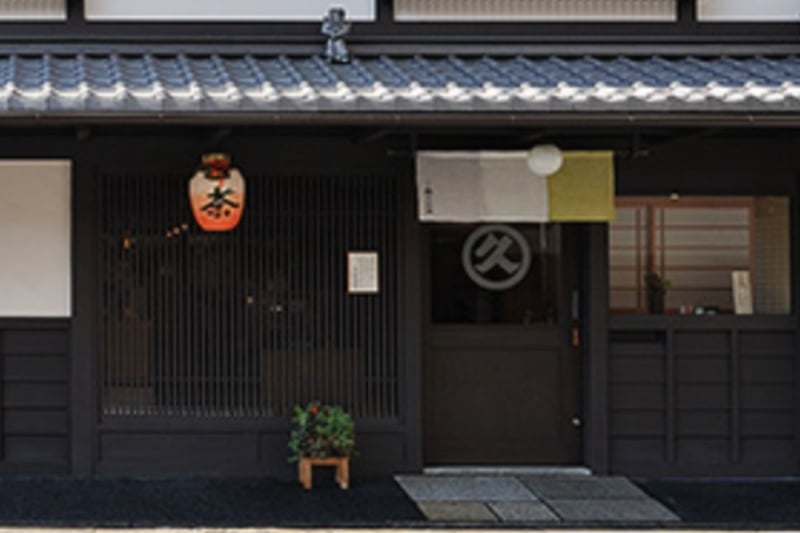
Image Credit: Marukyu Koyamaen Official Website
You’ve probably heard of this brand if you’ve been on MatchaTok. With a history dating back to 1704, Marukyu Koyamaen has built its reputation as one of Japan’s finest tea producers, supplying matcha to temples, shrines, and luxury hotels across the country. Their stone-milled matcha is especially prized for its smooth, umami-rich flavor profile.
At the back of the store, you’ll find Moto-an Tea House, their serene tearoom where you can enjoy traditional Japanese sweets paired with freshly whisked matcha. If you’re lucky, you may also be able to join their matcha-making workshop, where you’ll learn how to properly prepare matcha using traditional tools. However, do note that the workshop requires advance booking and may be paused during peak periods.
Address: Japan, 〒604-8277 Kyoto, Nakagyo Ward, Sanbonishitoincho, 561 西側
Opening Hours: 10:30am–5pm
Try if: You’re new to the matcha scene and you wanna try the go-to basics
For Hidden Gems with Local Vibes
Bikouen Tea Stall (Shimogyo Ward)
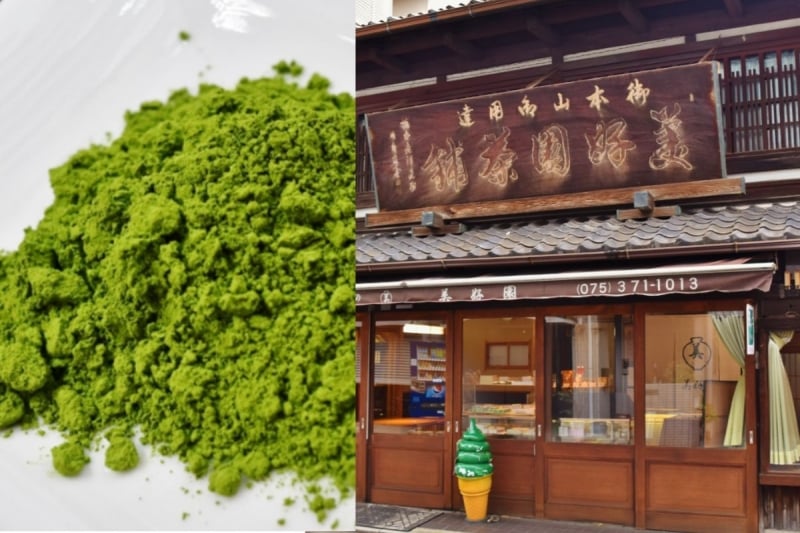
Image Credit: Bikouen Tea Stall Official Website
If you’re after a truly local matcha experience, this unassuming little shop might just be your favorite stop. Tucked along a quiet street near central Kyoto, Baikoan is run by a cheerful elderly tea master who’s been brewing and sharing tea for decades.
While he doesn’t speak much English, his warmth bridges any language barrier. If you show even the slightest interest, he might invite you to sit for an impromptu tea ceremony at the back of the shop. He’ll also demonstrate how to whisk matcha and steep sencha properly, sometimes tailoring the experience to matcha types you’re curious about.
All of Baikoan’s teas are sourced from Uji, and the quality far exceeds the price tag, making it a perfect pick if you want something authentic and affordable.
Address: 46-1 Tachibanacho, Shimogyo Ward, Kyoto, 600-8487, Japan
Opening Hours: 10am–7pm, closed Sundays
Try if: You want expert guidance during your matcha shopping experience
Sumida Kouseien (Arashiyama)
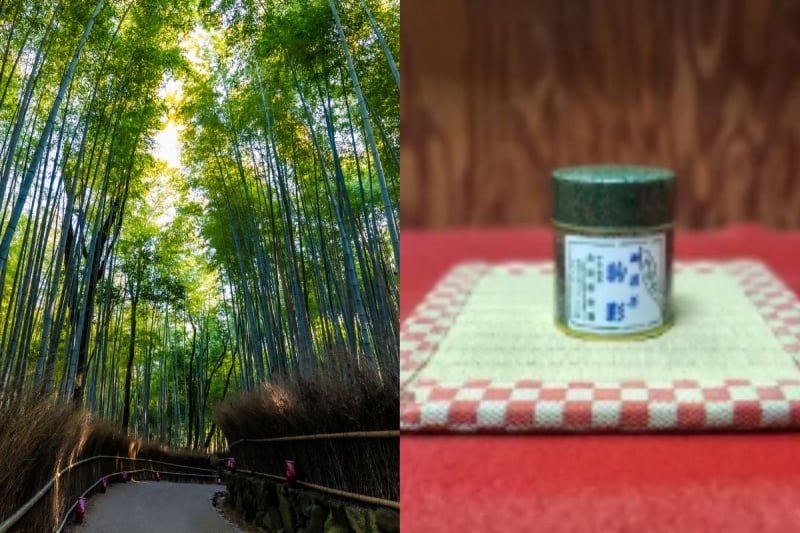
Image Credits: (L-R) Jensen Chua via Canva Pro; Sumida Kouseien Official Website
Tucked away on a quiet street near the famed Bamboo Grove, Sumida Kouseien is a hidden gem for matcha enthusiasts. This family-run tea shop boasts a 93-year legacy, with the 74-year-old proprietor personally overseeing every aspect of matcha production. The shop offers a range of matcha grades, all sourced from Uji, ensuring top-tier quality.
Address: Japan, 〒616-8384 Kyoto, Ukyo Ward, Sagatenryuji Tsukurimichicho, 16 角田香勢園
Opening Hours: 1pm–4pm, closed Tuesdays & Wednesdays
Try if: You’re doing the Arashiyama loop
Also read: 10 Free Things to Do in Kyoto for Singaporeans on a Budget
For the Full-On Tea & Dessert Experience
Nakamura Tokichi Honten (Uji)
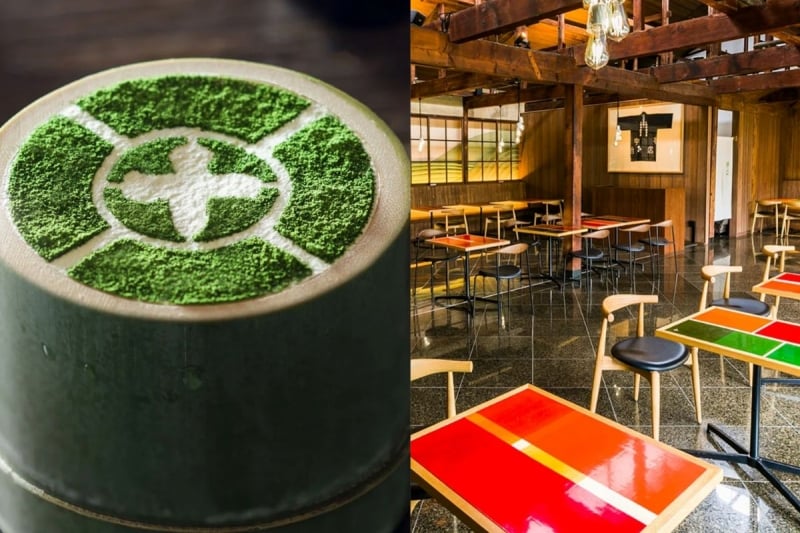
Image Credit: Nakamura Tokichi Honten Official Website
Nakamura Tokichi Honten, established in 1854, is located in Uji (you already know that’s a good sign.) Founded by Tokichi Nakamura, who innovated the electrified matcha grinding mill, the company has played a significant role in modernising the tea industry. The main store, housed in a building over a century old and designated as an Important Cultural Landscape, offers visitors a blend of tradition and innovation.
The adjacent café, set in a renovated tea factory, provides a serene atmosphere where guests can enjoy these delicacies while overlooking a traditional Japanese garden featuring a 250-year-old pine tree. Do note that due to high demand, the café operates on a first-come, first-served basis, and it’s advisable to arrive early to secure a spot
For those interested in a deeper experience, Nakamura Tokichi Honten also offers tea ceremonies and workshops, allowing visitors to immerse themselves in the art of matcha preparation.
Address: Ichiban-10 Uji, Kyoto 611-0021, Japan
Opening Hours: 10am–5:30pm
Try if: You’re the kind of person who reads tea labels like wine notes
Saryo Tsujiri (Gion)
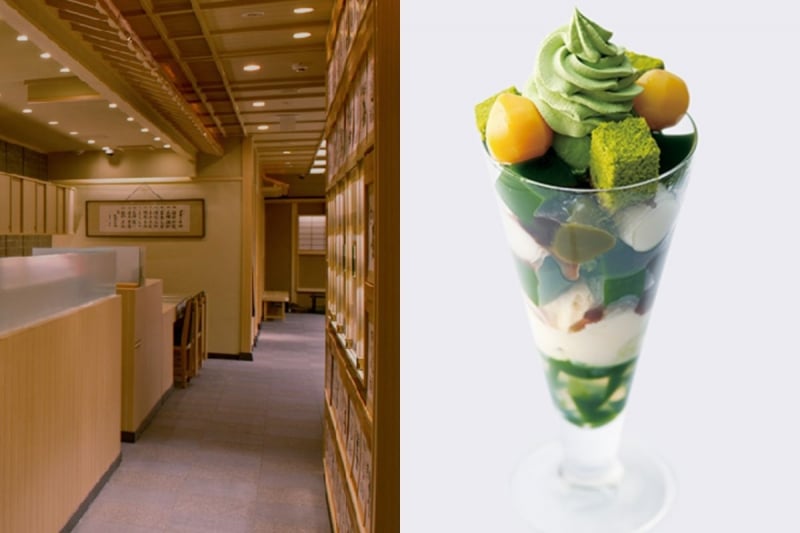
Image Credit: Saryo Tsujiri Official Website
A household name in Kyoto’s tea scene, Saryo Tsujiri has been serving Uji-grown teas since 1860. Though the brand originated in Uji, its flagship store now sits in the heart of Gion, blending tradition with tourist-friendly convenience. Inside, you’ll find a beautifully curated range of matcha and sencha (available as loose leaves or tea bags) all clearly labeled in English and packaged in elegant, origami-inspired designs.
Beyond the shopfront, a stylish café awaits, serving everything from savory matcha soba to decadent parfaits layered with jelly, mochi, and soft serve. Whether you’re in the mood for a full dessert set or just a quick takeout treat, this spot delivers on both flavor and presentation.
Address: 573-3 Gionmachi Minamigawa, Higashiyama Ward, Kyoto, 605-0074, Japan
Opening Hours: 10:30am–7:30pm
Try if: You’re into classics
Also read: 12 Reasons Why Travellers Love Kyoto
For Casual Browsing & Take-Home Tins
Horaido Tea Stall (Teramachi Arcade)
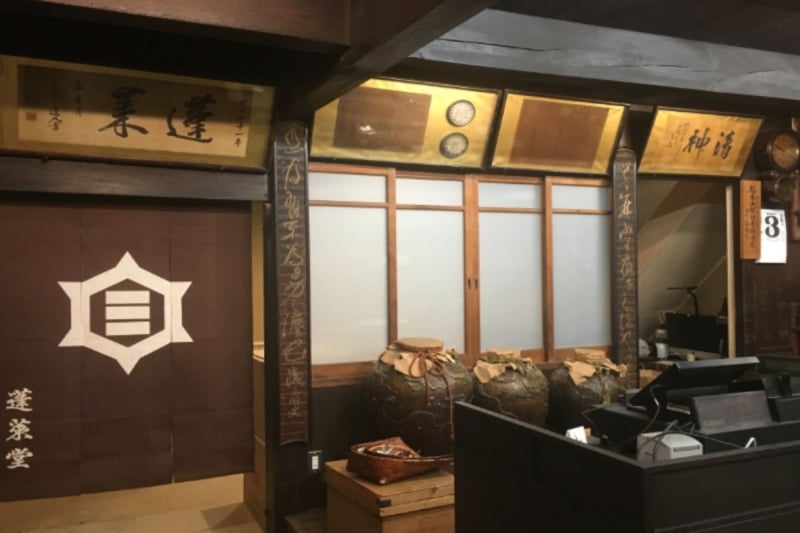
Horaido Tea Stall Official Website
Tucked inside Kyoto’s Teramachi Shopping Street, Horaido has been quietly perfecting the art of tea since 1803. Everything is clearly categorized by type and occasion, from daily drinkers to gift-worthy ceremonial blends. The staff are helpful and knowledgeable, with some speaking English, and there’s a clear price menu to guide your choices. Alongside tea, you’ll also find a range of beautiful traditional utensils, from bamboo whisks to handcrafted bowls.
Address: Japan, 〒604-8043 Kyoto, Nakagyo Ward, Higashidaimonjicho, 295
Opening Hours: 10:30am–7pm; closed on Thurs
Try if: You want a low-pressure intro to Kyoto tea
Yamadashiya (Nishiki Market)
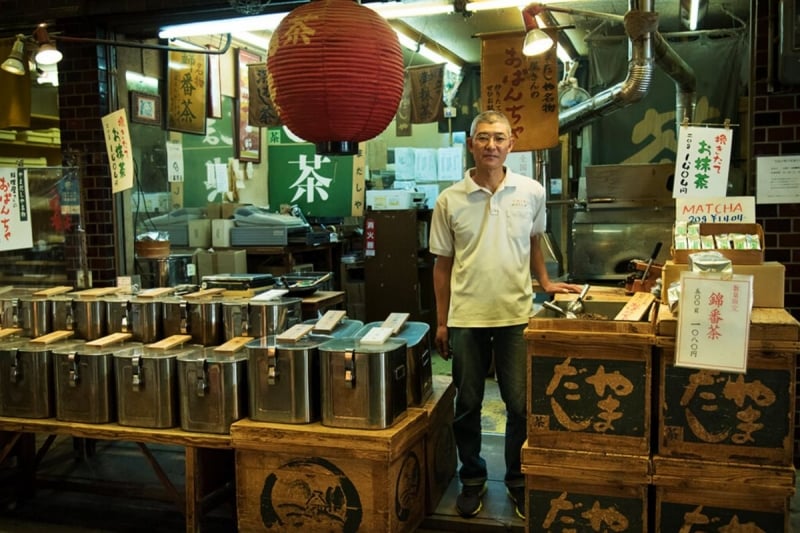
Image Credit: Yamadashiya Official Website
If you follow your nose through Nishiki Market, you’ll likely end up at Yamadashiya, a cozy tea stand where the scent of freshly roasted leaves spills into the street.
You’ll find a solid selection of teas here, all sold by weight. The teas are fragrant, and perfect for everyday drinking. Other than matcha, another standout is their hojicha (roasted green tea) that the owner roasts fresh on-site daily. In Kyoto, hojicha is instead called bancha. Bancha shares the same character (‘ban’) as obanzai (home cooking), which hints at its humble roots as the go-to drink in local households.
That said, this stall caters mainly to a Japanese-speaking crowd, so the labels are entirely in Japanese. But you know, a quick scan with Google Translate always goes a long way.
Address: Japan, 〒604-8057 Kyoto, Nakagyo Ward, 錦小路上る梅屋町501
Opening Hours: 10am–5pm; closed on Thurs
Try if: You want affordable matcha and snacks in one go
Also read: 10 Matcha and Green Tea Snacks and Treats To Try in Japan
Final Thoughts
There’s a reason matcha has taken over our morning routines. In a world that moves fast, the ritual of making matcha slows us down. From the whisking to the sipping, it’s about being present, and noticing the layers of flavor, the soft bitterness, the quiet calm.
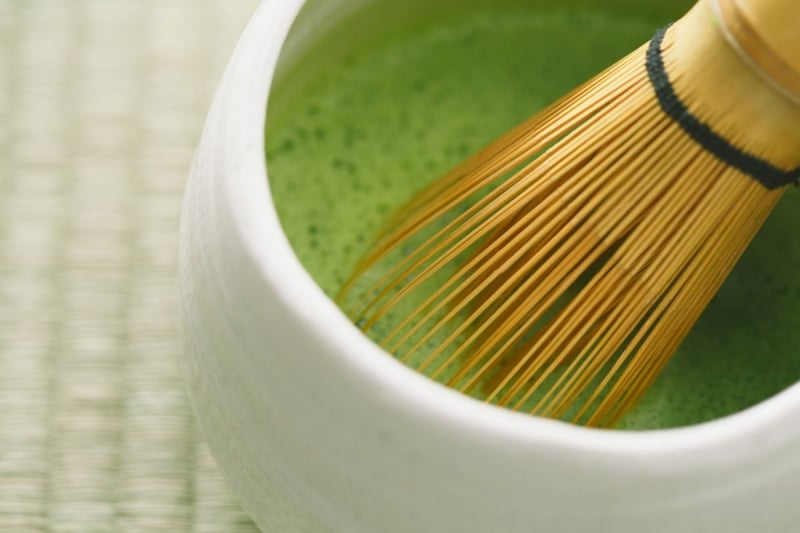
Image Credit: Aflo Images via Canva Pro
But remember that everything good, when in excess, loses its value. Don’t hoard your matcha, and buy in moderation. Matcha deteriorates fast. Once opened, matcha starts to lose its color, aroma, and flavor, and no one wants to drink dull green dust. Plus, Japan is currently facing a nationwide matcha shortage, and many shops are limiting purchases. So get what you’ll actually use in the next 2–3 months.
Just take it as another excuse (as if you needed one) to come back to Kyoto to restock.
Featured Image Credit: Aflo Images / Canva Pro




